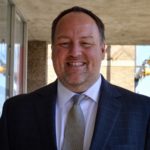The Helper v. The Helped
by Craig Nash
Over the past year I have used this space to highlight the “embarrassment of riches” Waco has with regards to organizations and individuals who devote themselves to addressing poverty and alleviating food insecurity in our most vulnerable citizens. We truly are a model for what can happen when stakeholders in a community see a need and spring into action to ensure that the need is met. Long before out-of-towners were trekking to the Heart of Texas to linger around two abandoned, rusted out grain silos, they were coming here to learn how to organize around a common good from our many churches and nonprofits who have been at this for a long time. I hate to think what this city would be without all of this, but I wonder sometimes if, in the process of all this helping, we have inadvertently created a situation that we need to be helped out of?
And I’m not talking about the “savior complex” that do-gooders often get labeled with, though that is certainly a concern. But that is a diagnosis best left to professionals, not armchair therapists looking for a reason to assuage their guilt over not being a part of social action. Instead, I’m referring to the lines of demarcation that are reinforced in communities between those who are giving help and those who receive it.
There’s a quote from Fred Rogers that makes the rounds on our social media feeds when a tragedy of some kind occurs—
“When I was a boy and I would see scary things in the news, my mother would say to me, “Look for the helpers. You will always find people who are helping.” To this day, especially in times of disaster, I remember my mother’s words and I am always comforted by realizing that there are still so many helpers – so many caring people in this world.”
Quick, without thinking, when you read this, who do you picture in your mind as the “helper?” If you are like me, you thought of paid, professional helpers—Cops; Firemen; EMT’s; Doctors; maybe clergy. But more importantly what do these helpers look like in your mind? Their vocations aside, do they look like people you go to church with, have over for cookouts, or sit next to at the bar during Happy Hour? Or are they people from “other” neighborhoods, who go to “other” churches and frequent “other” establishments of commerce? It’s likely that they looked more like the former than the latter. They did for me.
We have fairly fixed categories in our minds for who the helpers are and, conversely, who is receiving help. In some ways this is inevitable. But when we aren’t deliberately conscious of this, we create harmful lines of separation and, really, of elevation. These lines not only heighten the stigma of needing help, they also make it difficult for the helpers to make connections with their neighbors, connections not based on what can be given away, but what can be mutually shared with each other. Helpers need to be open to be helped, and not just in the sense of being “blessed by helping,” but in actually being in a place of dependency on “the other.”
I don’t know this looks like across the board, though I do have some possibilities swirling in my mind, and I suspect you do as well. I’d love to hear how you, dear Act Locally Reader, wrestle with the idea of breaking down these lines of distinction between “helper” and “helped,” and if there are any practical suggestions you have found to guide our community along. Do you see anyone in Waco doing this especially well? In your “dream world,” how does this play itself out? Please share your thoughts in any of the numerous venues we share our thoughts these days— comment sections of Act Locally or Texas Hunger Initiative, when you see me at the coffee shop or when you decide you want to email me your thoughts at [email protected]. Especially helpful thoughts and conversation may just make it in my next Act Locally Blog.
 Craig Nash has lived in Waco since 2000. Since then he has worked at Baylor, been a seminary student, managed a hotel restaurant, been the “Barnes and Noble guy,” pastored a church and once again works for Baylor through the Texas Hunger Initiative. He lives with his dog Jane, religiously re-watches the same 4 series on Netflix over and over again, and considers himself an amateur country music historian.
Craig Nash has lived in Waco since 2000. Since then he has worked at Baylor, been a seminary student, managed a hotel restaurant, been the “Barnes and Noble guy,” pastored a church and once again works for Baylor through the Texas Hunger Initiative. He lives with his dog Jane, religiously re-watches the same 4 series on Netflix over and over again, and considers himself an amateur country music historian.
The Act Locally Waco blog publishes posts with a connection to these aspirations for Waco. If you are interested in writing for the Act Locally Waco Blog, please email [email protected] for more information.
